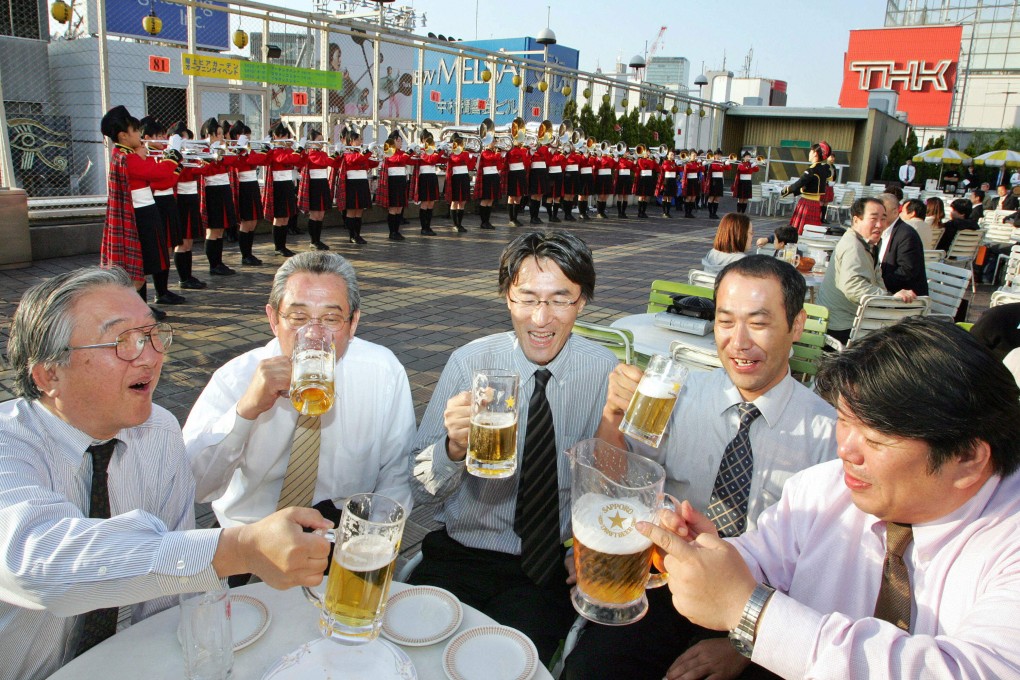In Japan, saying ‘sorry, I was drunk’ often excuses bad behaviour. Gen Z could change that
- Being drunk and misbehaving have long been tolerated in Japanese society. But younger Japanese don’t appear to be drinking as much as their elders
- Academics point to elements of the Japanese character that justify shamelessness during people’s downtime, so long as they are polite in public life

Tada, 55, was arrested by police on Thursday on suspicion of attempting to forcibly hug and kiss a woman flight attendant after yelling at other passengers and attempting to hit at least one other person, according to Japan’s Fuji News Network.
His behaviour aboard the aircraft was sufficient to attract the attention of the nation’s media, but his excuse – that he was too intoxicated to remember his actions – has raised no eyebrows. Being drunk and apologising are, it seems, steps on the path to absolution in the eyes of many Japanese.
Izumi Tsuji, a professor of the sociology of culture at Tokyo’s Chuo University, puts it down to the two key elements of the Japanese national character.
“We Japanese have two states, honne (true feelings or desires) and tatemae (facade),” he said. “Ordinarily, everything we do at work and in public is tatemae. We are polite and respectful to those around us, we follow the rules of society, and we keep ourselves under control.
“When we want to act freely, we enter our honne world,” he told This Week in Asia. “This is when we travel and relax, when we have our leisure time and yes, when we drink. This is when we show our true feelings and say what we are really thinking.